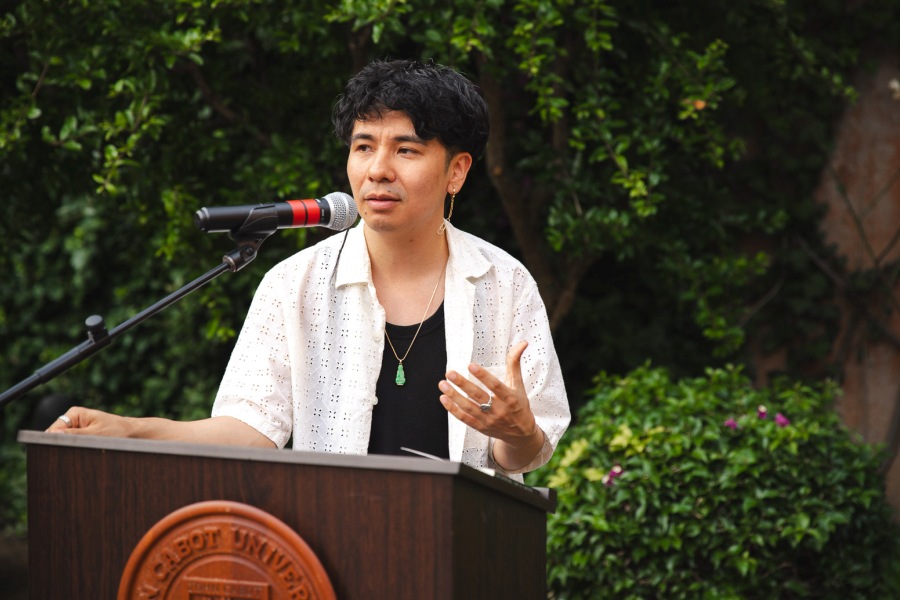John Cabot University Welcomes Superior Court Judge Eric Z. Lucas

Judge Erik Lucas
On March 26, JCU Student Government, in partnership with the Community Service Program, STAND, and the African Cultural Club, interviewed Eric Z. Lucas. A graduate of Harvard Law School, Lucas is the first African American judge for the Snohomish County Superior Court in the state of Washington. JCU student Kehisha Johnson moderated the interview.
Judge Lucas was born at Fairchild Air Force Base in Spokane, Washington, where his father served. However, when the family encountered financial difficulties, his father had to take a job in Everett, WA, which resulted in the family moving there.
Lucas spoke about his experience living in Spokane and Everett. In Spokane, he was surrounded by a large black community, mostly tied to the church. In Everett, he was not able to find such a large community. Lucas recalls that the second Baptist church of the city was only attended by 28 black people at the time.
In Everett, Lucas’ father went from being an employee to eventually running his own electrical company. Lucas worked for his father’s company and was expected to join the family business. However, he decided to start studying Creative Writing and Philosophy at Stanford University, where he met his future wife, Beth. At Stanford, Lucas had to fully support himself. When his father got ill and the school tuition turned out to be too expensive, Lucas decided to return home and help with the family business. In 1981, he received a B.A. in English Literature and Elementary Education from the University of Washington, but teaching opportunities were limited.
That was when his father’s lawyer suggested that he study Law and offered to pay for his LSAT (Law School Admission Test). Lucas scored high on his test and was accepted to Harvard Law School. His father gave him permission to study at Harvard on one condition: that after graduation he’d come back home to represent the family company. What they didn’t know at the time was that a new graduate needs to gain experience as a prosecutor or public defender before being able to represent a company. Lucas then served as a prosecutor, a city attorney, and a trial judge.
During the interview, Lucas was asked to talk about his experience as a black man working in the field of law, where minorities are underrepresented. “I think it can be important for people to be supported by members of their same racial group, but that is not the essential factor,” said Lucas. While discussing his experience as the only black male in the prosecutor’s office, Lucas said that one should not let the idea of being part of a minority be an obstacle in one’s life and career path.
When speaking of what made him pursue his profession, Lucas said that becoming a lawyer was not a part of his career plan. “I don’t believe in career maps. I think that what happened to me was fate. It was my destiny to become who I am today,” he said.





